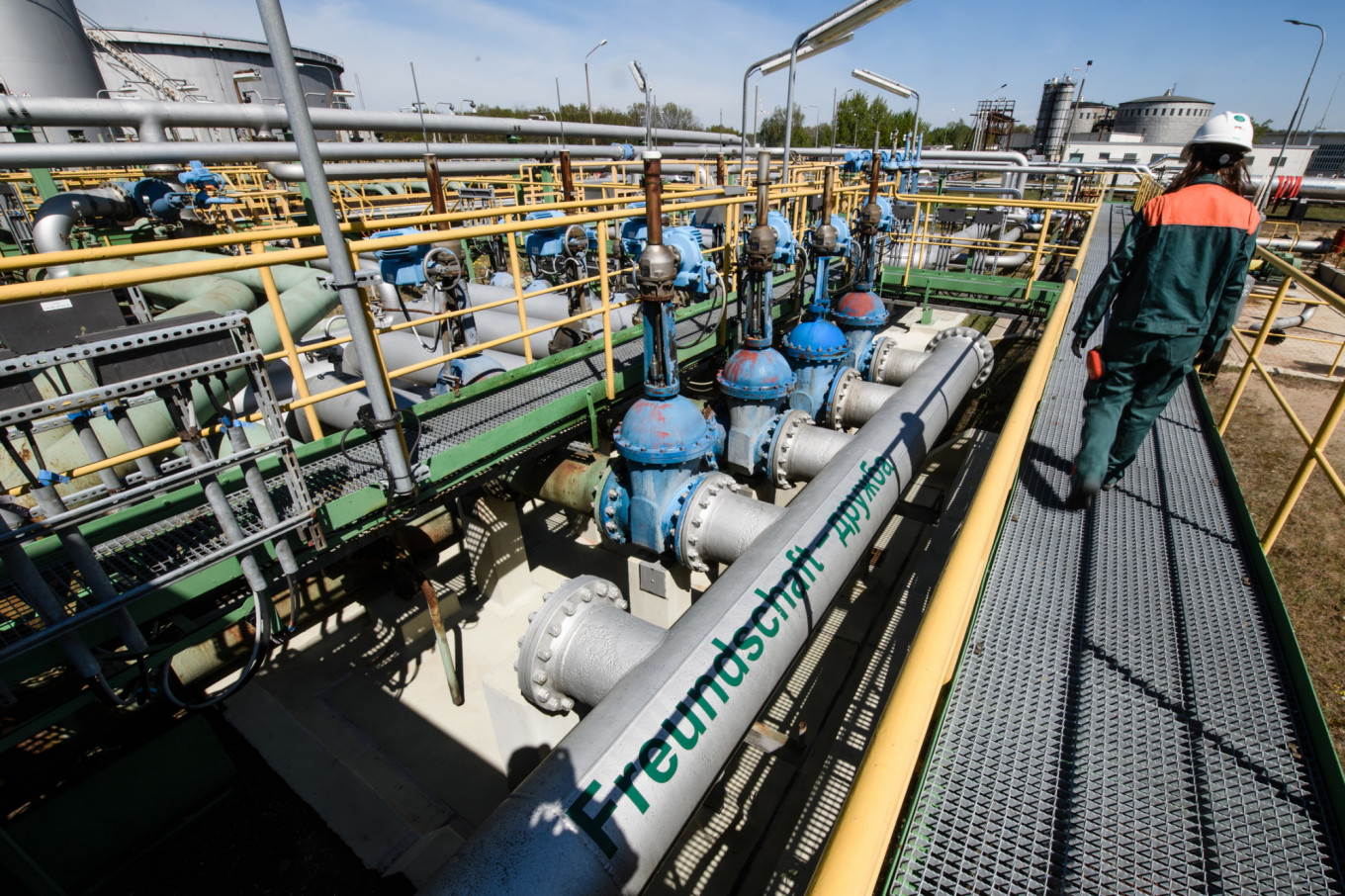
Months of work are needed to restore clean oil supplies via a key Russian pipeline to Europe, Belarus said on Tuesday, as Moscow suggested a deliberate act was behind the contamination that prompted some countries to release state oil reserves.
Poland, Germany, Ukraine, Slovakia and other countries halted oil imports via the Druzhba pipeline last week after finding contaminants that can damage refinery equipment.
A long outage could force refineries in Eastern Europe and Germany to cut operations and prompt Moscow to reduce oil production. It could also trigger claims by Western oil buyers against Russian producers and pipeline monopoly Transneft for lost profits as they struggle to sell contaminated oil.
Nikolai Tokarev, head of Transneft, told Russian President Vladimir Putin on Tuesday that the contamination had been deliberately conducted by a private firm in the Russian region of Samara, on the Volga river.
The company “accumulates oil from small producers in the Ulyanovsk, Orenburg and Samara regions … and is transferring it to the pipeline system”, said Tokarev, a close ally of Putin, without identifying the company.
“This company … has deliberately injected oil that was not properly prepared (for entry to the pipeline system).”
Clean oil
Tokarev added that Belarus had received clean oil from Russia on Tuesday, while contaminated oil was being returned from Belarus to Russia by rail.
“We will later mix it with regular oil in (the Russian Black Sea port of) Novorossiisk and sell it onwards,” he told Putin. “We expect the situation to improve in the near future and will resume working on a regular schedule.”
Russia‘s Energy Ministry said talks were held on Tuesday with oil pipelines operators in Hungary and Slovakia. It said parties involved planned to resume the transit of oil as soon as possible and oil quality at the Baltic Sea port of Ust-Luga would be back to normal before May 7.
Slovak oil refinery Slovnaft said supplies of clean oil transported via the pipeline should be restored from mid-May.
Ukraine’s Ukrtransnafta said parties in the Budapest talks agreed to remove about 400,000 tons of low-quality oil from Druzhba in Ukraine and Belarus and store it in reservoirs. It said clean oil was expected to reach the European Union on May 18.
The significance of any damage is not yet clear, nor is it known who will foot the bill. Belarus, which processes Russian crude into refined products for sale abroad, estimated its loss from a reduction in product exports at $100 million.
Pipelines in Russia, Belarus, Ukraine and Poland are estimated to contain 5 million tonnes of contaminated Russian oil, Belarus’s state news agency Belta cited the operator of Druzhba’s Belarusian section as saying.
“They (the private company in the Samara region) have cheated (by supplying contaminated oil). For us, this is very serious damage from an economic, material and image point of view,” Putin told Tokarev.
Russia and Belarus – where Druzhba splits into the southern leg that goes to Ukraine, Slovakia, Hungary and Czech Republic and the northern spur routed to Poland and Germany – held a second day of talks on Tuesday in Moscow.
Belarusian state energy company Belneftekhim said its Mozyr refinery was expected to receive clean oil on May 4 at the earliest. The Russian energy ministry put the date at May 3-4.
Some 50,000 tons of contaminated oil should be forced out in Russia and 120,000 tonnes on the Belarusian side, Belneftekhim said in a statement. Belarus will store its contaminated oil at Mozyr.
“The measures taken would allow for the restoration of only one of Druzhba’s lines. Full restoration will take a couple of months of heavy work,” Belneftekhim said. It did not specify which parts of Druzhba would be immediately decontaminated.
Andrei Verigo, first deputy head of Gomeltransneft Druzhba, operator of Druzhba’s Belarusian section, said the pipeline would reach 60-65 percent of its average annual capacity on May 10-11, Belta reported.
It could take up to six months before the pipeline starts operating at full capacity, he added.
Druzhba can pump up to 1 million barrels per day (bpd), amounting to 1 percent of global crude demand. In total, Russia is exporting around 4 million bpd and other destinations in the south, northwest and east are unaffected, traders said.
Hungary and Poland will tap their state strategic oil reserves at least to partially replace Russian supplies.
Higher export plans
The contamination comes as Russia plans to boost monthly Urals exports to five-year highs in May, a preliminary schedule showed, before the expiry of a deal on output cuts agreed with the Organization of the Petroleum Exporting Countries.
Traders said on Tuesday there was no change so far to the plan.
Transneft said that in May, state-run Russian Railways might transport 100,000 tons of oil by rail. It did not specify the oil quality.
Putin said on Saturday the investigation could lead to a wider inquiry, possibly including law-enforcement agencies.
The pipeline problem has cut off a major supply route for Polish refineries owned by PKN Orlen and Grupa Lotos , as well as plants in Germany owned by Total , Shell, Eni and Rosneft.
